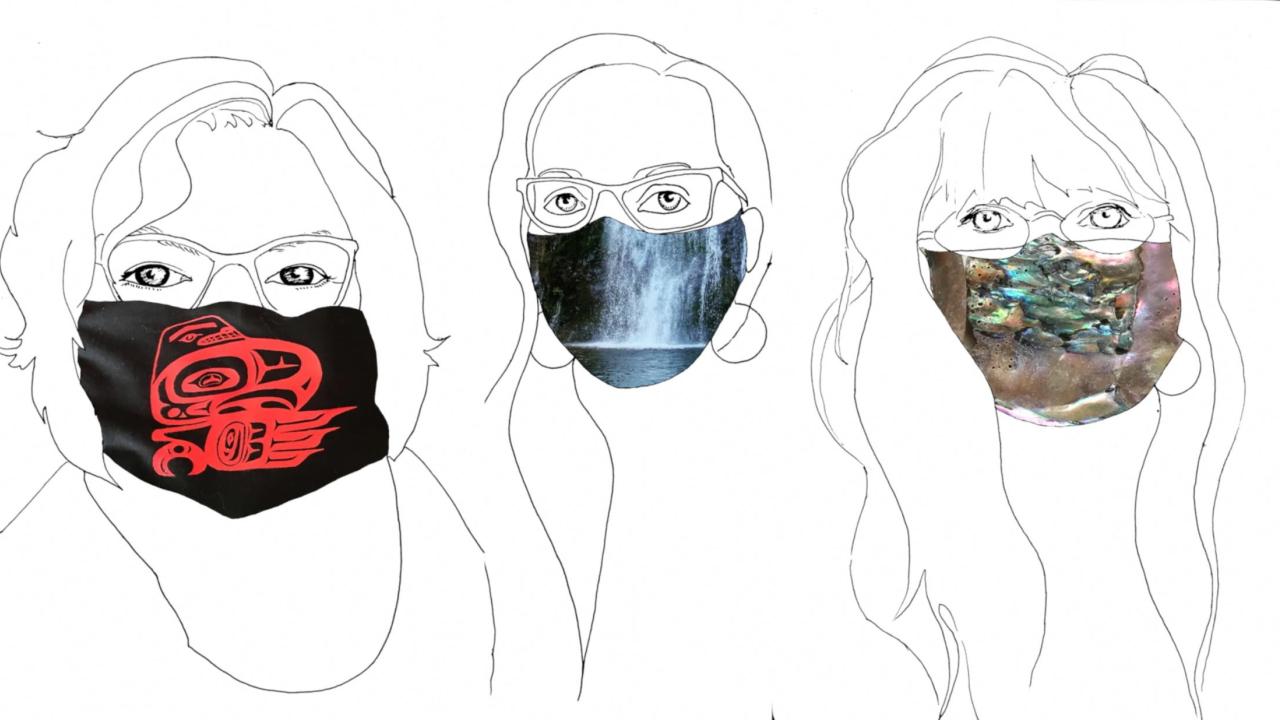
Despite Challenges, 2020 Mellon Public Scholars Show Resilience and Compassion in their Work
2020 has been a uniquely challenging year for community-engaged research and for public life. And yet, amid a pandemic, an intensifying movement for racial justice, a terrifying wildfire season, and an election that revealed yet more cracks in the democratic foundation of the United States, this year’s 12 Mellon Public Scholars showed remarkable compassion and creativity in their work. The projects they completed over the summer of 2020 generated structures of community care, built platforms for art and stories from marginalized communities, provided necessary perspectives on systemic injustice, and served as examples of public scholarship’s crucial role in today’s world.
As in previous years of the program, each of this year’s Mellon Public Scholars was paired with a faculty mentor to develop a community-based research project. After completing a spring seminar (held virtually this year) that introduced the intellectual and practical aspects of public humanities scholarship, the scholars spent the summer working closely with their community partner to complete the project.
While a few of this year’s projects were able to continue mostly as planned, most changed significantly from the original proposals submitted by the scholars in January of this year. For example, Katelyn Stiles, who is a PhD student in Native American Studies as well as a Tlingit filmmaker, visual artist, and dancer, had originally planned to travel to Alaska to work with Sheet’ka Kwaan/Naa Kahidi dance groups to video document Tlingit performances. But the pandemic’s impact on arts organizations and travel made that project impossible.
Instead, Stiles began reaching out to Tlinglit and Haida women living in California and conducting interviews with them over Zoom. The resulting video project, “G̱unahéen [Different Water],” juxtaposes audio excerpts from these interviews with hand-drawn portraits Stiles created of the interviewees wearing masks. “The drawing was then layered with an image of a place, animal, or practice that was medicine for them, and this became their mask,” Stiles describes in the video.
Christina Thomas also completed a project different from the one she had planned, but that carries over an artistic practice central to her initial proposal and to her work more broadly. Thomas, a traditional Numu (Paiute) singer, contemporary Native performer, classically trained vocalist, composer, language preservation leader, and PhD student in Native American Studies, had initially planned to work closely with elders to record songs from Native American communities in the Great Basin region.
Faced with a virus that is particularly dangerous for older adults and is disproportionately impacting Native communities, however, Thomas changed her project out of compassion for vulnerable community members. “Instead of putting these elders at risk, Christina spoke with several over the phone and shifted her project to focus on the transcribing and studio recording of songs already in her collection,” said Stephanie Maroney, Mellon Public Scholars Program Manager. “Moreover, Christina used her time to gather and deliver medicine care packages to elders in the Reno-Sparks area, Reno-Sparks Indian Colony, and Pyramid Lake Paiute Tribe.”
Eli Alston-Stepnitz is another of this year’s scholars whose work with a marginalized community changed when the virus made that community even more vulnerable. Alston-Stepnitz had initially planned to work on a trans health storytelling project with the Sacramento Gender Health Center, which provides essential aid and support for the trans community. But it soon became clear that the pandemic’s impact on the center would prevent that project from taking place.
Alston-Stepnitz transformed this experience into an opportunity to analyze how the pandemic has further endangered a community of people already struggling for survival, in part by destroying networks of support and care. In a video presentation, Alston-Stepnitz shows that violence against trans people, especially trans people of color, escalated in 2020, and that nonprofits providing services to this community are struggling to continue their operations with severely limited resources.
Normally, Mellon Public Scholars present their work in the fall at a public event in downtown Davis, with participation from the UC Davis campus and local community. “This year the pandemic has thwarted plans for an in-person event,” Maroney explained, “so the Mellon Public Scholars Program is experimenting with an online gallery that features multimedia presentations from the 2020 scholars."
The gallery will showcase work ranging from facilitated virtual conversations with Stockton’s Latinx community, to an in-depth analysis of the racial and ethnic equity of the California Arts Council’s grants distribution, to a presentation and virtual performance exploring the liberatory possibilities of the fandango, and more.
For graduate students interested in learning more about community-engaged research and the Mellon Public Scholars Program, registration is now open for the December 15 PhD Unlimited event, Publicly Engaged Research and Mellon Public Scholars.
For graduate students interested in joining the 2021 cohort of Mellon Public Scholars, which will include original projects as well as pre-established partnerships, the call for proposals is now open. Learn how to apply here.
